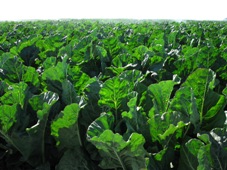
Climate Watch contributor David Gorn has been looking at the link between climate and the food we eat. His latest report aired recently on NPR’s All Things Considered.
So I have to admit, when I first got this story assignment from National Public Radio, my reaction was mixed. You want to reduce global carbon emissions by changing your personal DIET? Oh, come on. I mean, how much of an impact could diet change have on climate change?
Quite a bit, apparently.
A United Nations report says livestock accounts for 18 percent of the world’s greenhouse gasses, much of it from the methane produced by cows, as well as goats and sheep.
Shipping beef and dairy products across the country and around the globe also contributes heavily to that carbon footprint, in the form of emissions from trains, planes and trucks.
So the idea is that by cutting out beef and cheese from your personal diet, you can significantly reduce your personal carbon footprint. Chris Jones, a staff researcher at UC Berkeley’s Institute of the Environment, says the production and distribution of beef, pork, lamb and cheese are particularly high offenders on the greenhouse gas emissions chart.
In my story for All Things Considered, I focused on an Earth Day event where the University of San Francisco cafeteria and about 400 other food service outlets across the country, managed by Palo Alto-based Bon Appetit, were cutting all beef and cheese out of the menu for one day. Yes, no cheeseburgers in a university cafeteria. Scary thought, eh? The students didn’t seem to flinch, though.
It looks like this approach to the low-carbon diet it may be catching on among Bay Area hospital cafeterias, as well.
It’s unclear what effect the current efforts might have on climate patterns but it’s a familiar pattern to Americans; using personal buying power to influence public policy decisions.
